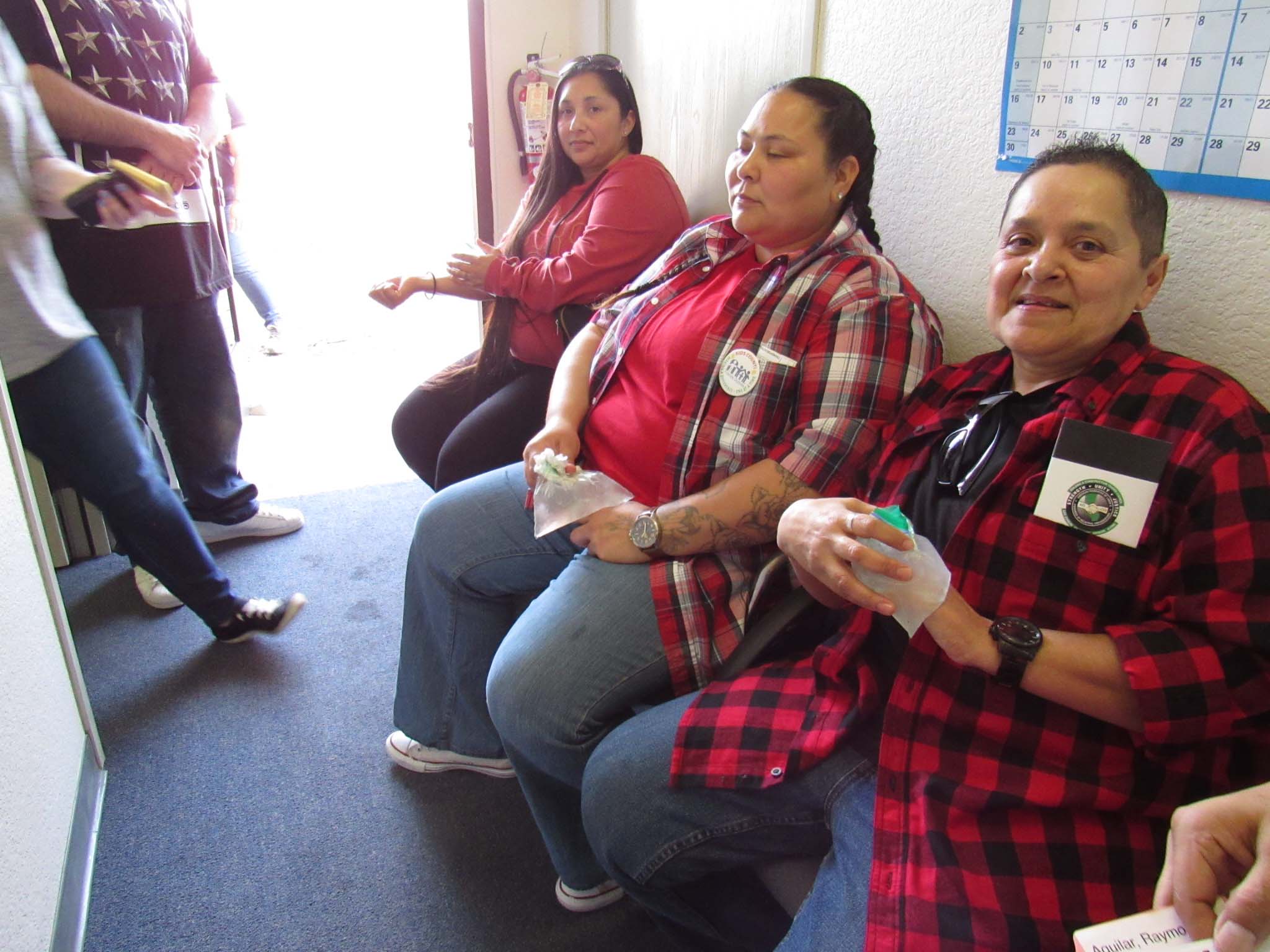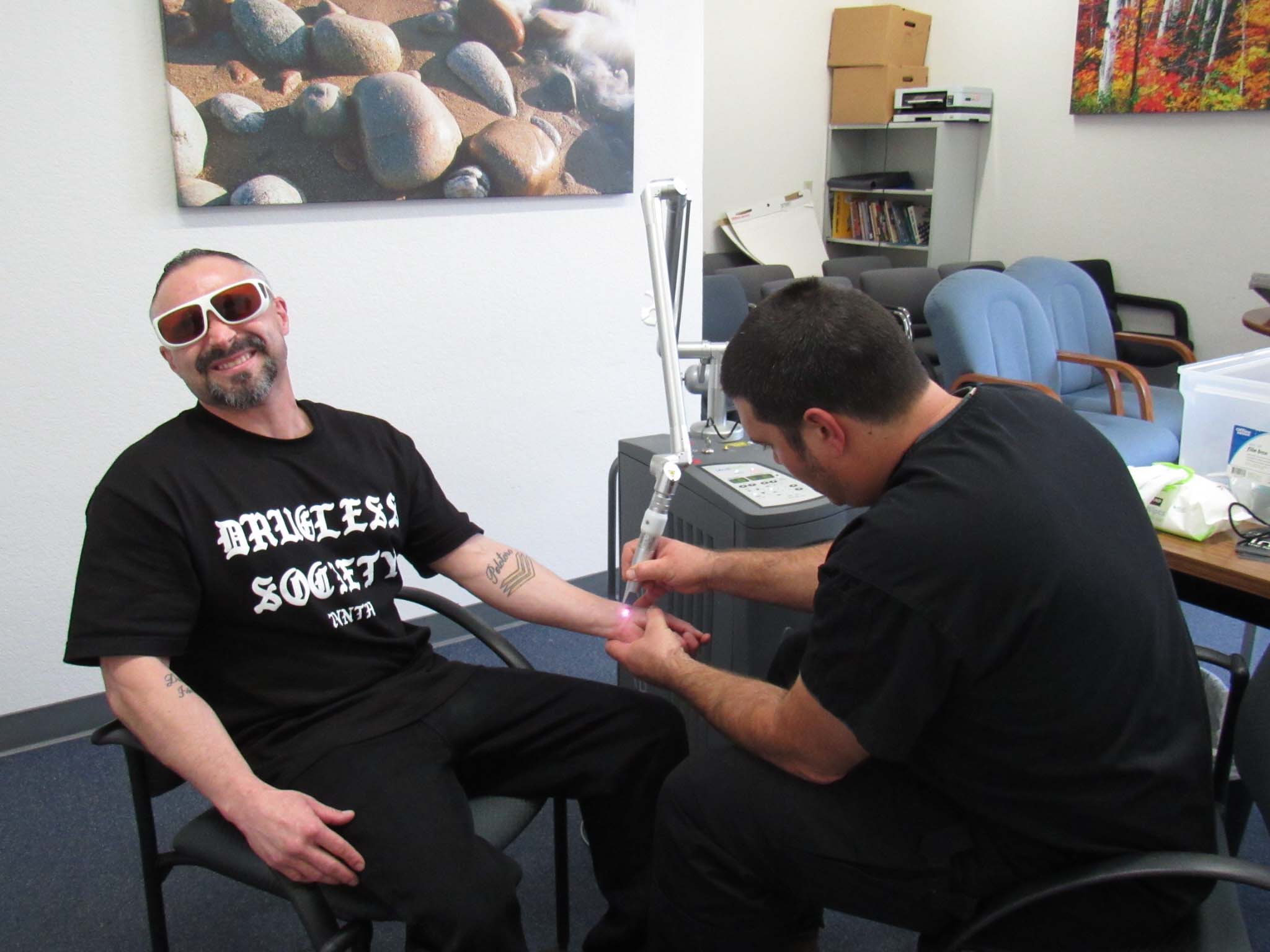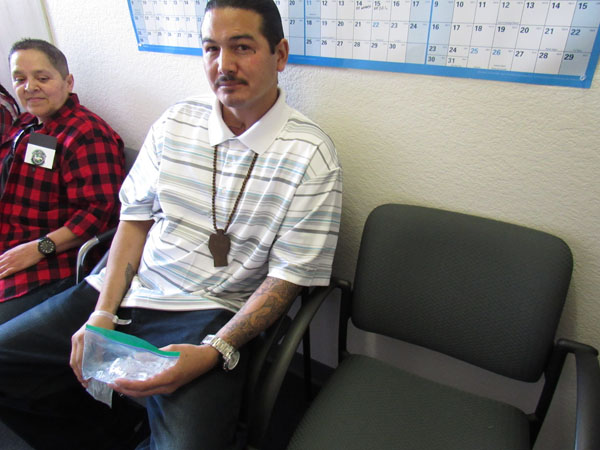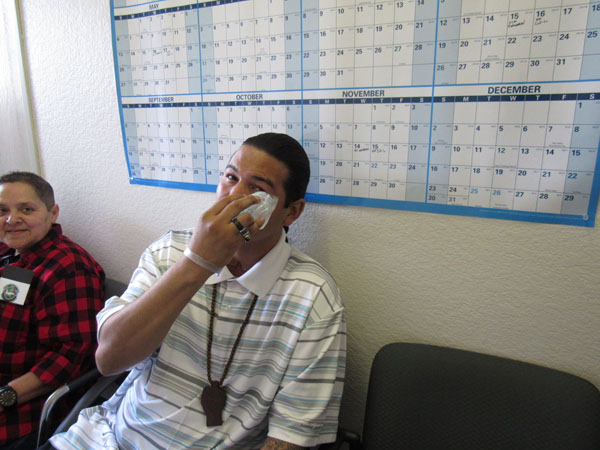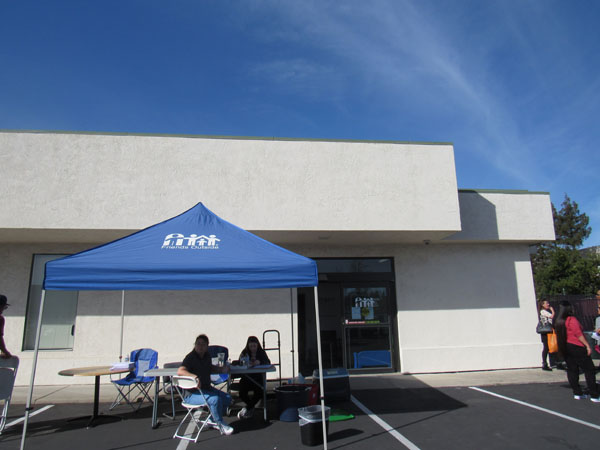
By Anovia Thibeaux
The American criminal justice system holds over 2.3 million people in 1,719 state prisons, 102 federal prisons and a little over 901 juvenile correctional facilities with a 10 percent transfer rate to state prisons once being granted the freedom of adulthood, according to the U.S. Bureau of Justice.
The word “prisoner” for some comes a bitter, and vile taste, enough to make one spit back up the volatile truths associated with the word, for others there is simply nothing.
There’s no affiliation with what is meant to be held behind bars, all due to seemingly self-inflicted action.
The stigma of prison sticks with a formally incarcerated individual, if not through the pulling and reviewing of records, then through the lines and marks displayed on the skin.
Tattoos are often a symbol of the past.
On March 10, Friends Outside, a local Stockton-based charitable group, sought out to change that. The group works with formally incarcerated individuals* to remove tattoos that may be holding them back from life, or are just the bearer of bad memories.
“I got out of prison in 2011, I saw the need to move forward, to get rid of a lot of the gang related tattoos holding folks back. We are not just job blockers and life stoppers, we could be out with our daughter or son at the grocery store in the wrong side of town. It’s not just our lives, it’s or babies lives as well. We do this to better or community as well,” said Andrew Lucero, one of the lead coordinators’ at Friends Outside.
At the event, the smell of smoky carne asada a blend with roars of laughter.
It’s like a normal barbecue, except those presents are hoping for a second chance. The people in attendance aren’t those we sink our teeth into during Saturday-night crime shows. They aren’t irredeemable.
“See with tattoos no matter what you are automatically stereotyped. People see tattoos they don’t see the true meaning, for my family, this tattoo has a symbolic meaning but to the outside world I am a criminal, So I am getting it removed to wipe away those stigmas,” said Ammita Hassan, who is in a transitional program.
The road to redemption is sometimes simply a clean canvas.
Gretchen Newby, is one of the organizers and a lead staffing coordinator for Friends Outside.
Her tone was tranquil, but powerful in delivering the genuine message of what it means to have a tattoo on your body that simply does not, or never did define that individual’s truth.
“Our goal in these tattoo removal events is to acknowledge that at time when you put that on your body you were telling the world – okay this is who I am. Then later on when you are able to have this change of light be to say – wait that is not who I am anymore, and I want the world to see is who I really am,” she said.
A warm smile broke across her face content and peaceful, knowing the group’s services are providing a second chance at reshaping the self-image.
A line of formerly incarcerated inmates waiting, some with icepacks weeping at their seams covering various parts of the body. Some hold their faces in anguish, others simply smirk and dab away at the faint sting left behind from the tattoo removal machine, just happy to know that the first session is over but their new image is becoming.
A sharp, loud electrical sound fills the room “TZzPT -TZZZPT- TZZZ-ZZpt,” almost mimicking that of a large industrial bug zapper on top of a dense infectious energy of sheer adrenaline.
“You’re identified. As a murderer or gang member, I did 26 years in prison – now that I’m out I am trying to leave that stigma behind. I got this in prison, and that’s not me anymore,” said Raymond.
Editor’s Note: The purpose of the Friends Outside event is to hope individuals move past their mistakes and build new lives. In that vein, only first names were used in interviews unless permission was granted.

